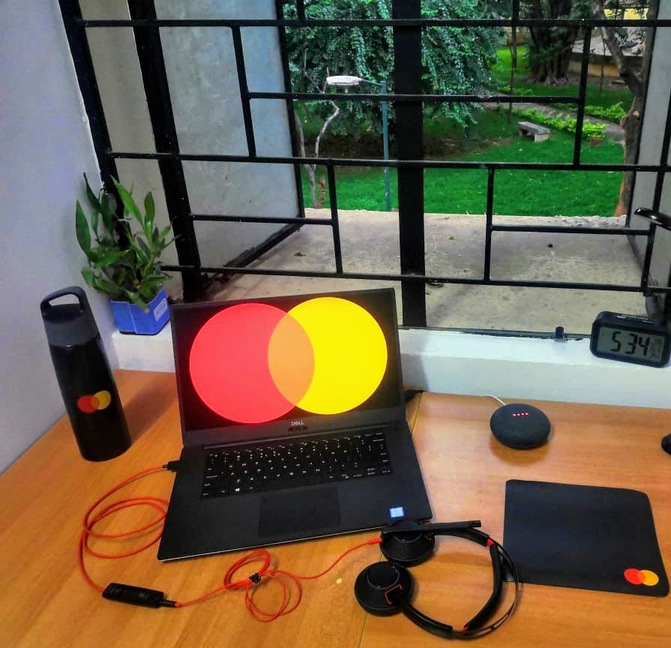(Note: While my younger self may have been overly enthusiastic in this post, I’ve kept it unedited as a reminder of my early career excitement and growth.)
The Beginning
A first internship holds a special place in any student’s life. It’s that moment when you step beyond textbooks, eager to make an impact, yet still a bit naive about how things work in the real world.
When I landed an internship at MasterCard, I was beyond excited!

I was a Data Science Intern in the Brighterion AI team at MasterCard. This team provides scalable AI solutions to credit card fraud detection, risk management, healthcare problems, and many more.
How It Started
Initially, I wasn’t even sure if we’d get summer internships due to the COVID-19 outbreak. Our semester schedule was a mess, with a delayed start and a compressed summer break. But luckily, the administration granted us seven weeks, and internships were back on the table.
What I Worked On
I focused on the credit risk management domain, specifically predicting credit delinquency, a fancy way of saying “Who might not pay their credit card bills in the future?”
To solve this, I designed a deep learning based architecture that could capture patterns in delinquent customers, improving risk prediction.
The technical challenge was interesting, but the real learning came from understanding the business impact. I had the opportunity to attend client meetings, which gave me a fresh perspective on how to fine-tune solutions based on real world needs.
The Corporate Laptop Struggle
If you’ve ever worked on a corporate machine, you know the struggle.
On your personal laptop, you’re the master: install, uninstall, tweak settings—do whatever you want. But on a corporate machine? No admin rights. No freedom. Just pain.
The real nightmare began when I couldn’t even access the VPN to enter MasterCard’s network. And since I wasn’t inside the “secure environment,” IT couldn’t remotely debug my issue. Stuck in a Catch-22.
This experience taught me something valuable: corporate environments are designed for security, (not convenience.) While frustrating at the time, it was my first real exposure to enterprise level security protocols.
The Highlights
- Andrew Ng Webinar: Attended a live session where Andrew Ng discussed AI ethics and fairness. Fanboy moment? Absolutely.
- CEO Interaction: Got to interact with Michael Miebach (MasterCard’s CEO) and other industry leaders. The imposter syndrome was real, but so was the inspiration.
- First Paycheck: There’s something magical about receiving your first professional paycheck. It’s validation that someone values your work enough to pay for it.
Key Takeaways
The Power of Clarity in Problem Statements
If you and your manager have different interpretations of the problem, you’re setting yourself up for confusion and wasted effort. Always clarify, confirm, and align expectations early on.
Early in my internship, I spent days working on what I thought was the right problem, only to discover my manager had a completely different interpretation. The result? Wasted effort and a valuable lesson in alignment.
Business Context Matters
Understanding the business impact of your work is just as important as the technical solution. My deep learning model was technically sound, but it wasn’t until I understood the business implications that I could truly optimize it for real-world use.
Final Thoughts
This internship was an incredible learning experience. It taught me that the best learning happens outside your comfort zone, the biggest obstacles become the best stories.
As I write this, I have two pending assignments due tomorrow. Questionable life choices? Absolutely.
P.S. To all the interns out there struggling with corporate laptops: You’re not alone. The struggle is real.